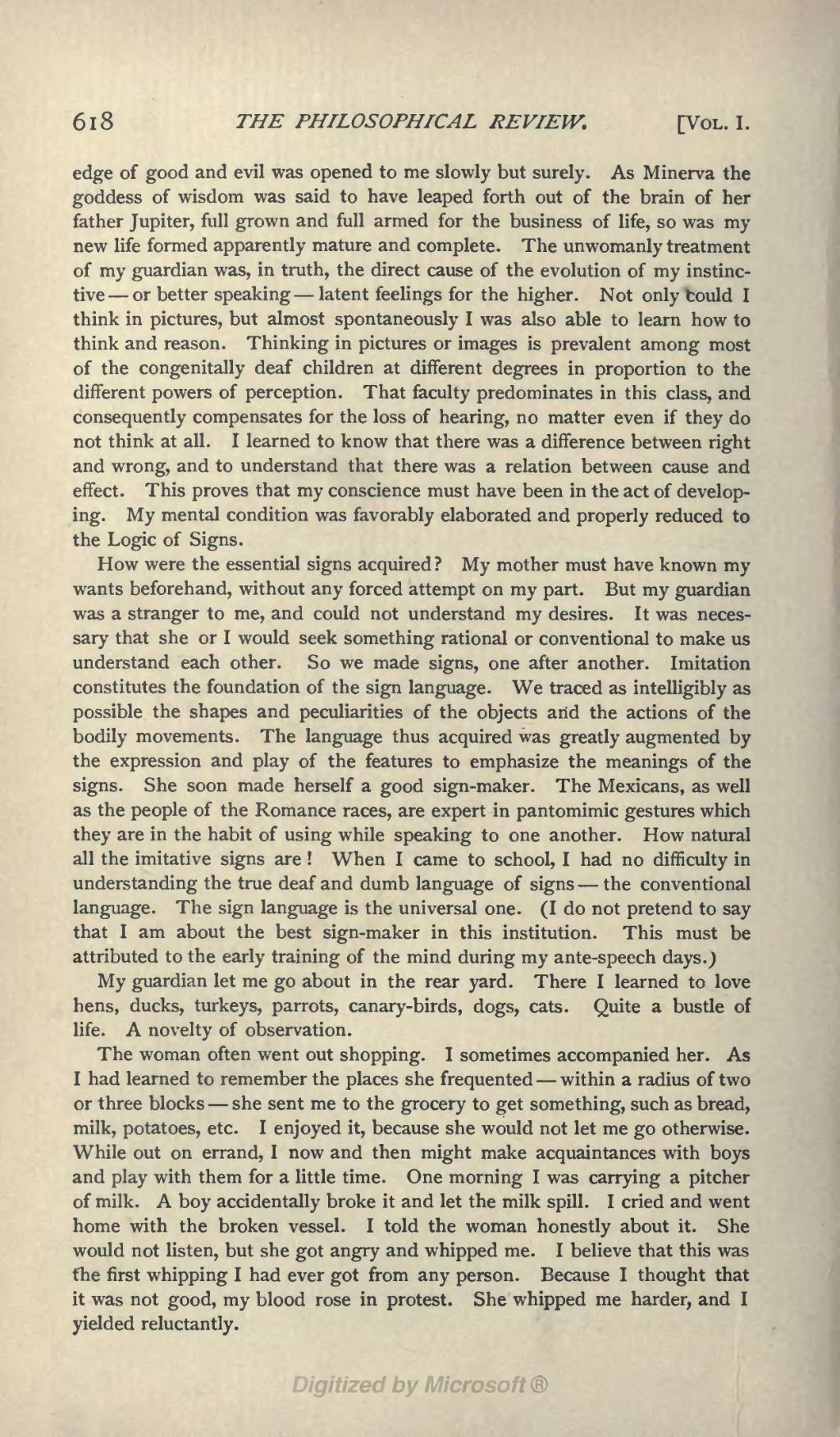edge of good and evil was opened to me slowly but surely. As Minerva the goddess of wisdom was said to have leaped forth out of the brain of her father Jupiter, full grown and full armed for the business of life, so was my new life formed apparently mature and complete. The unwomanly treatment of my guardian was, in truth, the direct cause of the evolution of my instinctive — or better speaking — latent feelings for the higher. Not only could I think in pictures, but almost spontaneously I was also able to learn how to think and reason. Thinking in pictures or images is prevalent among most of the congenitally deaf children at different degrees in proportion to the different powers of perception. That faculty predominates in this class, and consequently compensates for the loss of hearing, no matter even if they do not think at all. I learned to know that there was a difference between right and wrong, and to understand that there was a relation between cause and effect. This proves that my conscience must have been in the act of developing. My mental condition was favorably elaborated and properly reduced to the Logic of Signs.
How were the essential signs acquired? My mother must have known my wants beforehand, without any forced attempt on my part. But my guardian was a stranger to me, and could not understand my desires. It was necessary that she or I would seek something rational or conventional to make us understand each other. So we made signs, one after another. Imitation constitutes the foundation of the sign language. We traced as intelligibly as possible the shapes and peculiarities of the objects and the actions of the bodily movements. The language thus acquired was greatly augmented by the expression and play of the features to emphasize the meanings of the signs. She soon made herself a good sign-maker. The Mexicans, as well as the people of the Romance races, are expert in pantomimic gestures which they are in the habit of using while speaking to one another. How natural all the imitative signs are! When I came to school, I had no difficulty in understanding the true deaf and dumb language of signs — the conventional language. The sign language is the universal one. (I do not pretend to say that I am about the best sign-maker in this institution. This must be attributed to the early training of the mind during my ante-speech days.)
My guardian let me go about in the rear yard. There I learned to love hens, ducks, turkeys, parrots, canary-birds, dogs, cats. Quite a bustle of life. A novelty of observation.
The woman often went out shopping. I sometimes accompanied her. As I had learned to remember the places she frequented — within a radius of two or three blocks — she sent me to the grocery to get something, such as bread, milk, potatoes, etc. I enjoyed it, because she would not let me go otherwise. While out on errand, I now and then might make acquaintances with boys and play with them for a little time. One morning I was carrying a pitcher of milk. A boy accidentally broke it and let the milk spill. I cried and went home with the broken vessel. I told the woman honestly about it. She would not listen, but she got angry and whipped me. I believe that this was the first whipping I had ever got from any person. Because I thought that it was not good, my blood rose in protest. She whipped me harder, and I yielded reluctantly.
